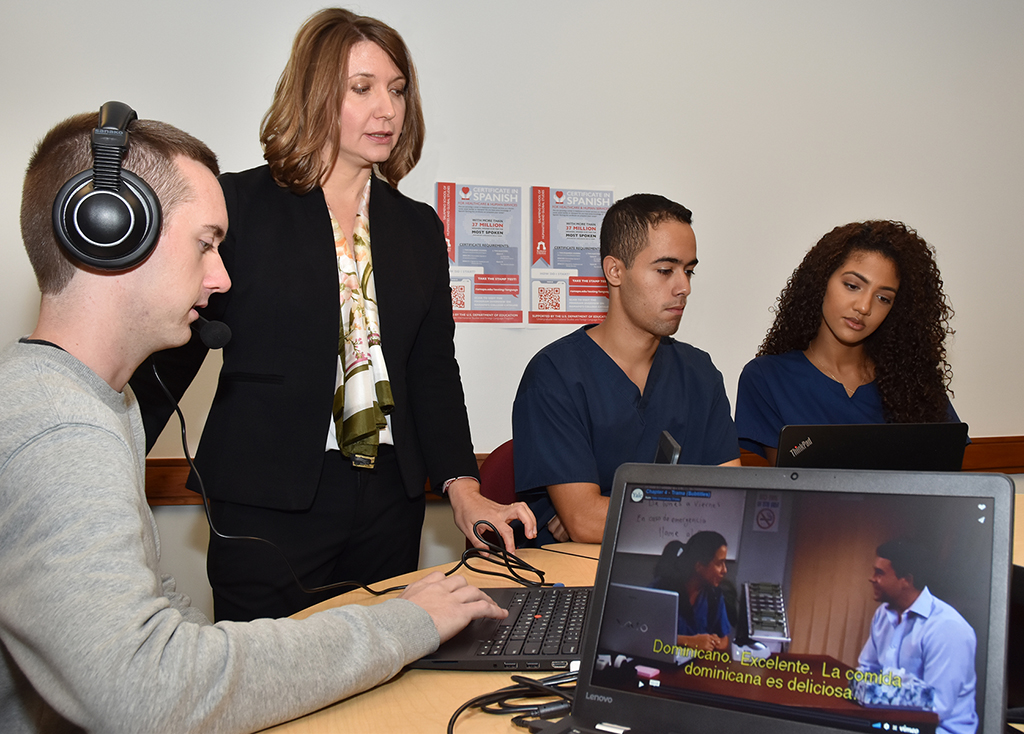College | Long Read
Impacting Society.
The Benefits of a Humanities Education
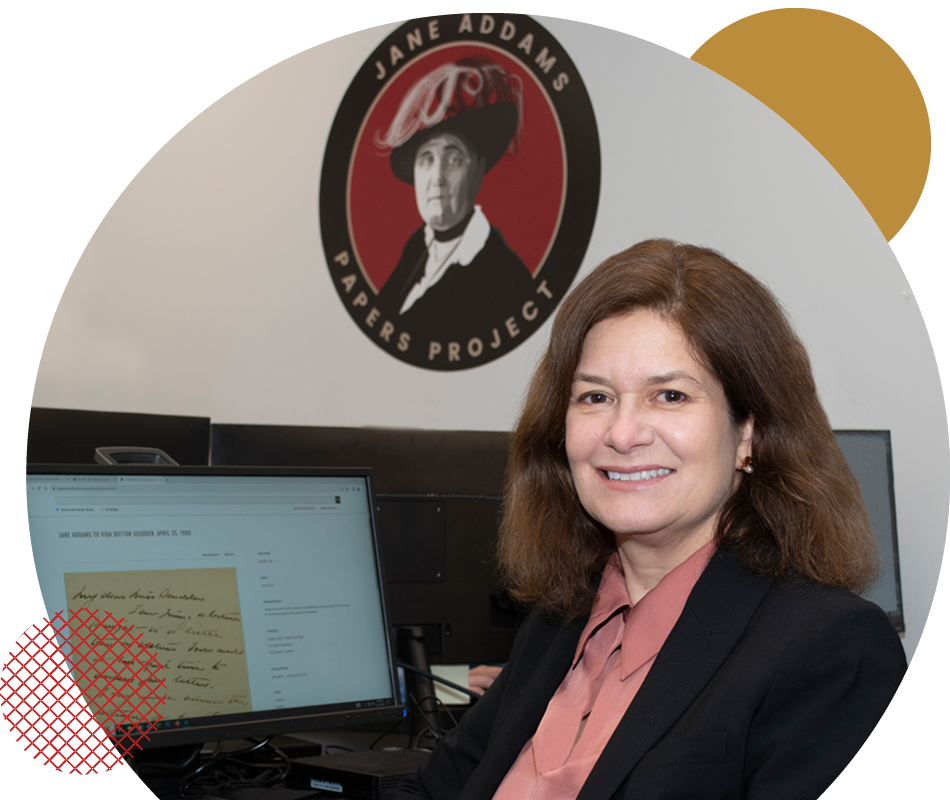
By Mark Gregorio | Winter 2024
Does a humanities degree matter these days? That’s been a burning question in the news and across the higher education landscape. At Ramapo College, faculty and students in the School of Humanities and Global Studies are challenging the perception that humanities are unimportant in life.
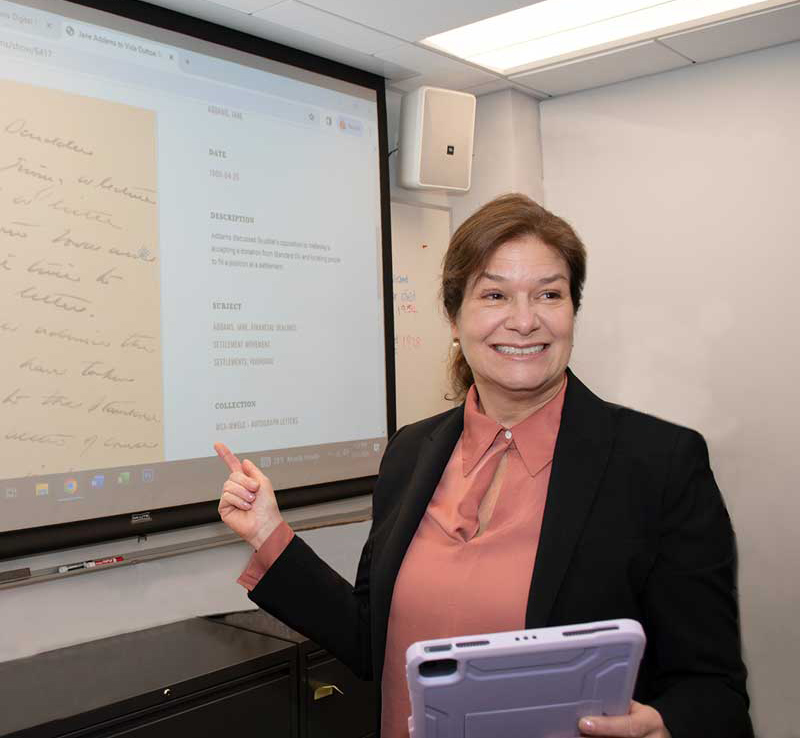
Susan Hangen, dean of the School of Humanities and Global Studies.
Susan Hangen, Ramapo’s dean of the School of Humanities and Global Studies, noted that over the past 15 years, enrollment in the humanities has been on nationwide decline. However, she believes one reason is that there’s a huge disconnect between what students think employers want and what employers consistently say they want. “If you are interested in a tech career and have the hard skills, you’ll get your foot in the door,” she added. “Having a humanities background, combined with data science, for example, provides opportunities for further professional growth.”
Humanities are a major part of Ramapo’s DNA. The research performed by Spanish Professor Natalia Santamaria Laorden is one example of how the humanities connect to many different disciplines. Through a grant from the U.S. Department of Education, Santamaria Laorden’s work expanded the college’s Spanish curriculum and developed a certificate program on Spanish and healthcare. The language certificate not only led to the creation of new courses but also increased enrollment for the college’s Spanish minor.
According to a 2023 New York Times article, humanities and liberal arts majors are threatened at higher education institutions due to declining enrollments and the challenge of demonstrating economic value. The long-term narrative is complicated, and while Hangen supports the media outlet’s idea that liberal arts majors may start slow, she notes these majors gradually catch up to their peers in science and technology fields. For Hangen, curricular change is key to reigniting student interest in humanities majors. To restore a sense of balance, researchers and students at Ramapo are revising what humanities look like and pioneering interdisciplinary courses through technology.
Digital humanities are an emerging and exciting area for academics – when you think about medieval literature or ancient history, you don’t necessarily think about data analysis or coding. Hangen pointed out that Ramapo’s faculty are transforming the student experience by deploying digital tools to explore, analyze and communicate information through technology used in humanities.
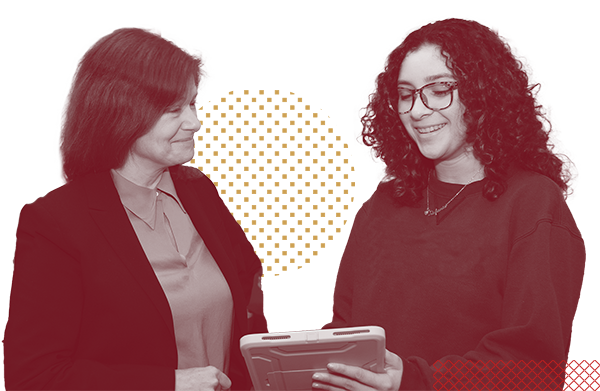
“Employers are looking for skill sets found in the humanities. Skills such as critical thinking, ethical judgment and working effectively in teams.”
— Susan Hangen
One prominent project involves the mapping of the Ramapo Munsee Lenape nation. Ramapo College History Professor Sarah Koenig and her students are working to preserve North Jersey history by producing a digital map of historically and culturally significant sites for the Ramapough Lenape Nation in areas encompassing Bergen and Passaic counties and nearby Rockland County, N.Y.
In addition to Koenig’s path-breaking, community-based research, African American History Professor David Colman is also setting a new standard. His research involves digitally preserving community history in Englewood, N.J. Colman’s project, “Englewood Makes History,” is a collaboration between Englewood community organizations and Ramapo College. His investigation explores the vibrant history of Englewood, in particular, that of African-American residents in the 4th Ward and immigrant communities in the 3rd Ward.
As with all digital humanities projects, Koenig, Colman and their students aren’t just cranking out research papers. They’re making informed decisions while translating the subject matter into interactive displays, maps and digital timelines by using tools found in computer science. These projects are public-facing and will serve communities beyond the college.
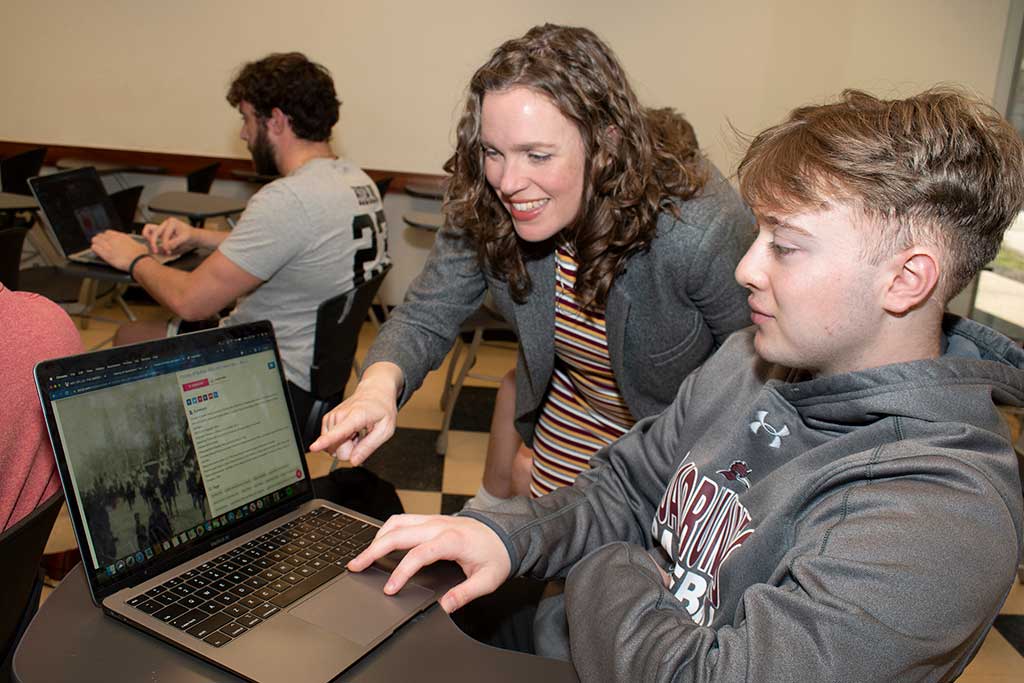
History Professor, Sarah Koenig, is seen working with students on a community research project. Topics ranged from data analysis and digital mapping to preserving history.
Hangen explained the humanities are changing rapidly. Digital humanities offer students the chance to experiment, learn and reflect on how computational methods are implemented both in humanistic research and in their daily lives. Through research projects and digital course assignments, digital humanities provide students with experiences that make them highly marketable to companies.
“One thing that higher education leaders can do is better communicate the career potential of a humanities education,” Hangen said. “Employers are looking for skill sets found in the humanities such as critical thinking, ethical judgment and working effectively in teams,” she added.
Ramapo is experiencing a knowledge revolution where it is redefining its humanities curriculum and bringing research into the public spotlight. “For decades we have been communicating on paper and primarily to other scholars. Our faculty and students are developing new ways to generate and share information,” Hangen said. “A background in digital humanities from Ramapo has enormous value and builds a foundation that will serve our students well in a changing job market.”

